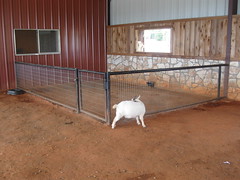Those who are charged with looking after horses that are prone to sweet itch find themselves as hostage to the weather.
Horse sweet itch is an annoying (in every sense of the word) allergic condition that is initiated by midge bites. It is neither welcomed by horse nor owner.
If there is a breeze, or when it is raining, midges cannot get airborne. Midges have to take to the wing when they want to seek out their next meal – which in many cases is a helping of blood sucked from your horse.
In contrast, weather that is calm and warm is exactly what midges like. In these conditions, midges will have little difficulty and easily find donkey’s and horses and thus be able to take advantage of any unprotected skin. Midge saliva seeps in at the site of the bite and a minority of horses are extremely hypersensitive to this saliva which, in turn, triggers the allergic reaction that is known as sweet itch.
Rugs and face hoods are a frequent selection made to help fight the scourge of equine sweet itch.
There is one major problem. A sweet itch rug will still leave your horse with vulnerable regions of skin. For instance, legs are prone to midge bites and cannot be protected by using a blanket. In addition, even the best fitting horse rug can rub against and cause chaffing to your horse’s skin – and rubbing should be avoided with sensitised skin. Equine blankets may also become heavy and burdensome for your horse or pony when they are used in rainy conditions or if your horse sweats profusely. Lastly, the protection of the blanket can be compromised if it has even the slightest of a tear or split.
Other equine owners resort to midge repellents to try and persuade the midges to go and look elsewhere for their next meal. Seen on the shop shelf in a variety of sprays, creams and ointments, insect repellents can help reduce the underlying sources of sweet itch. But, sprays tend to be hard to apply if there is a breeze and many ointment and cream products contain ingredients that can leave the owner’s skin feeling dry, chapped or just smelling, to say the least, unpleasant.
Many natural repellents have been tried by owners over the years with varying results. A few owners report that a particular wash mixture or certain foods can help in the fight against sweet itch. Before trying out such traditional methods yourself, it would be wise to seek out recommendations from those owners who have already tried out such methods. Keep your eyes open to any potential issues, though. For instance, garlic is hailed by some as a very effective midge deterrent. Alternative to this, many people hold the opinion that garlic may, on its own, create hyperactivity in your horse’s autoimmune system – and when the underlying issue is hypersensitivity, additional autoimmune stimulation is not exactly a desirable outcome.
Hence, always be careful when considering any new remedy.
Sweet itch is a hideous problem, but it can be overcome with persistence and fortitude.
Horse Shield (http://www.sweetitchtreatment.com) is a new treatment that takes an alternative approach to treating sweet itch. The silky smooth mousse and the nozzle applicator helps you apply it to the exact location of the sweet itch irritation even in adverse weather conditions. Being water resistant, Horse shield has the property that it remains active and beneficial in all weathers, even in heavy rain. Yet its unique formulation allows your horse’s skin to breathe and perspire naturally.

